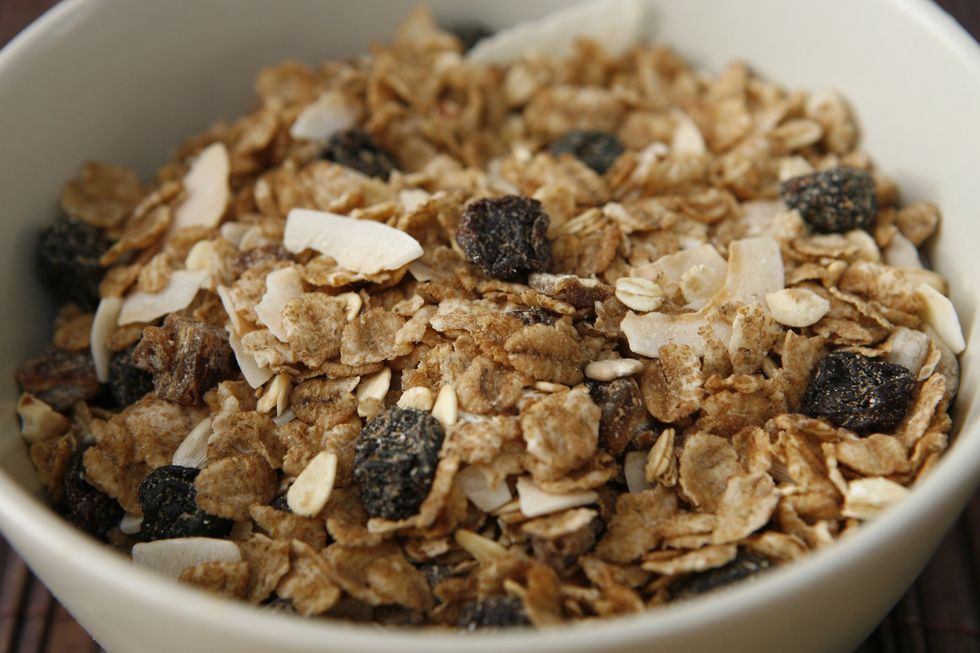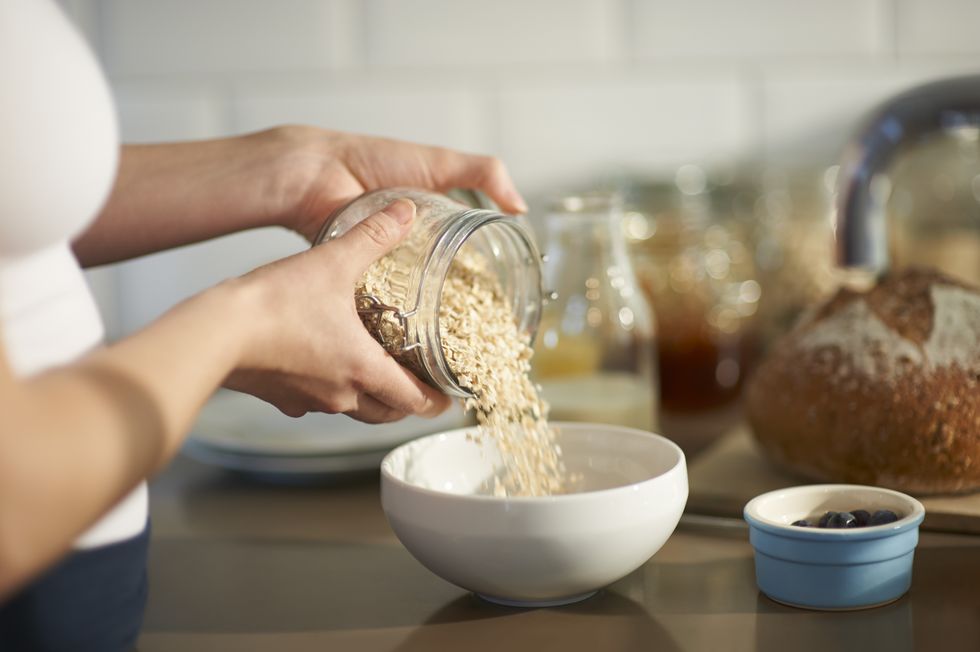Making changes to your diet is one of the simplest ways people can manage their blood sugar levels.
An expert has shared a food group to “start every meal with” for stabilising your blood glucose.
Speaking exclusively to GB News, health coach Steve Bennett recommended having foods rich in fibre.
Steve said: “When it comes to regulating blood sugar, fibre is absolutely key. Regulating your blood sugar is a crucial aspect of health that affects weight management and helps protect against chronic diseases.”

‘Fibre is absolutely key’ for reducing your blood sugar levels
PA
Fibre acts as a “natural speed bump in your digestion”, by slowing down the absorption of sugar and “preventing harmful blood sugar spikes”.
The health coach stated: “Fibre is the most important food group to prioritise. Foods such as leafy greens, like kale and spinach; non-starchy vegetables, like broccoli and cauliflower; and seeds, like chia and flax, are excellent choices.”
A study published in the National Library of Medicine supported Steve’s statements. It wrote: “Higher-fibre diets are an important component of diabetes management, resulting in improvements in measures of glycaemic control, blood lipids, body weight, and inflammation, as well as a reduction in premature mortality.
“These benefits were not confined to any fibre type or any type of diabetes and were apparent across the range of intakes of fibre.”
Timing when you have your meals is “also very important” for stabilising your blood sugar levels.
Steve explained: “Constantly grazing throughout the day keeps insulin levels elevated, which can lead to insulin resistance over time.
“Consider giving your body regular breaks from food. This doesn’t necessarily mean formal intermittent fasting, but perhaps avoiding late-night snacking or extending the time between dinner and breakfast.”
With the quantity of your meals, rather than eating many small ones across the day, have “more satisfying meals with longer gaps between them”.

Timing when you eat your meals can regulate blood sugar levels
GETTY
The expert said: “This gives your insulin levels time to drop, allowing your body to access fat storage and helping restore insulin sensitivity.”
By doing this, you can start to “build up metabolic flexibility”, which is the body’s ability to switch between using glucose and fatty acids as its main energy source.
Aside from diet, what you do after eating can be just as important for stabilising blood glucose.
Speaking to GB News, an expert said: “Exercising after a meal can help to lower insulin levels. It helps the body use insulin better by increasing insulin sensitivity. Muscle cells improve and can use any available insulin to take up glucose during and after activity.”


